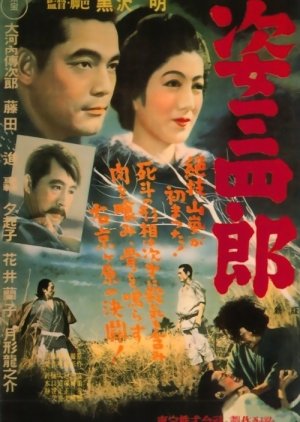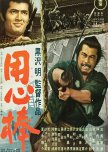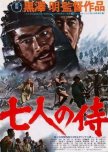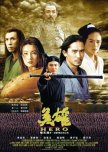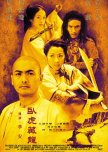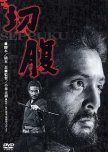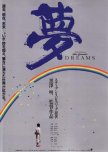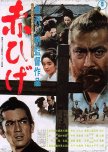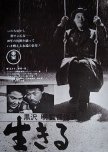
This review may contain spoilers
"A lotus will only grow in the mud"
Kurosawa Akira made his directorial debut with Sanshiro Sugata in 1943. Set in the Meiji era, the story followed brash young fighter Sanshiro Sugata as he learned about judo and himself. Though the plot was quite simple, Sanshiro's journey from thoughtless bully to thoughtful fighter was appealing to watch. (The film lost seventeen minutes of footage after it was cut by the Japanese censors deemed some scenes not appropriate for wartime viewing.)Sanshiro comes to town in order to learn more about jiu-jitsu. He wanders into a dojo just in time to hear the members deciding to mete out punishment to a rival instructor who is teaching a new version of jiu-jitsu called judo. Sanshiro asks if it's an ambush. "Ambush? It's just a match without a referee." And one where the opponents greatly outnumber the unsuspecting teacher. Sanshiro watches in fascination as Sensei Yano throws the half-dozen men attacking him into the river. Sanshiro quickly changes his mind and decides to train in judo instead. Initially, the young fighter takes every opportunity in town to become involved in a fight to test his abilities. After Yano tells him he knows nothing about humanity and that teaching him would be like "putting a knife in a lunatic's hand", Sanshiro attempts to prove his loyalty and worth by spending the night in a mucky lotus pond. When a flower blooms from the mire, he gains a revelation about life and himself. Much of the rest of the film entails Sanshiro competing against other opponents on his path toward growth as a person and in judo. He develops feelings for an opponent's daughter which complicates matters when he has to face her father in a competition.
Whether or not they were realistic, the fights were engaging. Each match engendered personal progress in Sanshiro. The best fight was Yano's against the rival school's ambush. With a quiet confidence Yano defeated his foes in a humorous manner. The most emotional fight was Sanshiro's contest with Shimura Takashi's Murai, who had fallen away from his practice and was no match for the younger fighter. The older man was gracious and let Sanshiro know they were not enemies which stirred more self-improvement in the young man. The climactic clash against the film's villain, Higaki, reminded me of a samurai duel the way they circled and sized each other up. One man found enlightenment through a flower, the other used one as an ashtray. Without Yano's guidance Sanshiro might have ended up like the arrogant Higaki. The last confrontation was where it truly looked like a Kurosawa film with the wind bending the tall grasses and clouds racing across the sky.
This may not have been Kurosawa's most emotionally or narratively complex film but it had a compelling hero's journey as Sanshiro learned the spiritual aspects of his practice and in life. He grew as a man and as a fighter under the guidance of his wise sensei. Unlike so many of Kurosawa's later heroes who were forced into isolation during their emotional crucibles, Sanshiro remained devoted to his sensei and gained friends from former opponents. I found Sanshiro Sugata to be an entertaining film, even in its shortened version.
8/11/23
Edit: I read there is a DVD version available that was able to include the missing minutes.
Was this review helpful to you?

